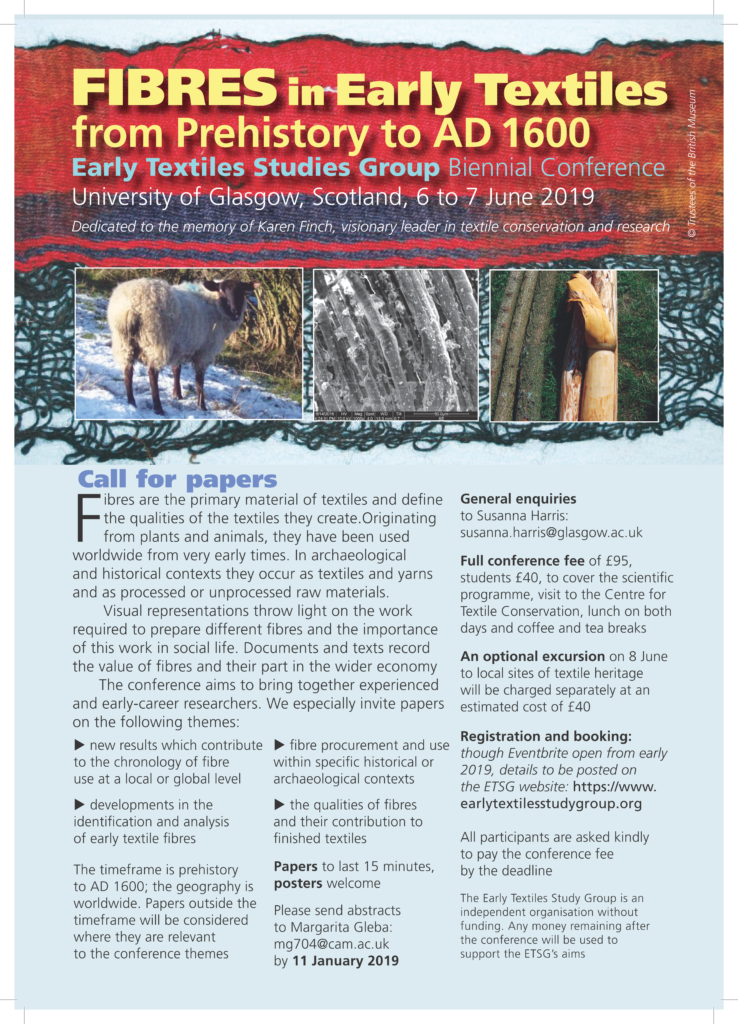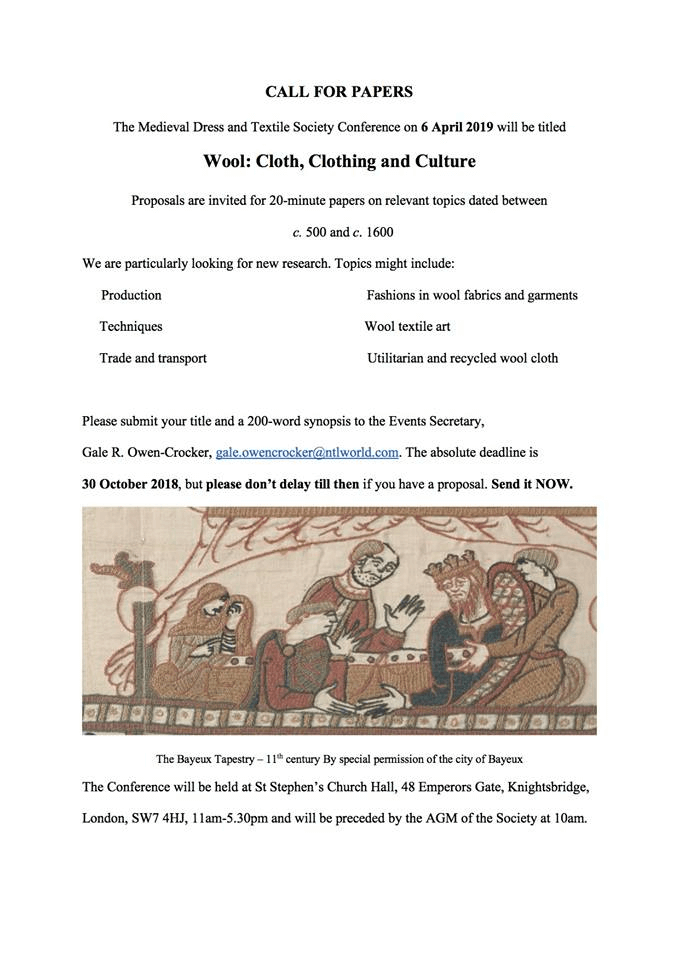Call for Papers: European Textile Forum 2018 - Aspects of Weaving and Braiding.
The European Textile Forum 2018 will take place from November 5 to November 11, at the Laboratory for Experimental Archaeology in Mayen, Germany. The Laboratory for Experimental Archaeology is the experimental archaeology research center of the Römisch-Germanisches Zentralmuseum (RGZM).
Our focus topic this year will be "
Aspects of Weaving and Braiding - tools, techniques, processes, finishes".
Woven cloth is the basis for most clothes and furnishings, and woven fabrics come in an incredible amount of variations. From the simplest plain weave done on a few sticks with strings to the most complex patterned fabrics with several warps and wefts done on an elaborate loom, weaving itself and the tools and processes used is also a wide and complex topic. Braiding, just like weaving, can take on different forms and range from very simple over-one-under-one structures to complex patterned and multi-person braids; braiding tools can be just the hands or massive braiding stands. On some occasions, weaving and braiding can even be combined, such as in tablet weaves when tablets swap places, or in twined weaves.
For this year's Forum, we invite you to join us and discuss weaving, braiding, and their many aspects. Whether you would like to talk about different loom types and their usage, how complex patterns were derived, passed on, and woven or braided in historical times, how different materials will influence a weave, how to reconstruct possible braiding techniques for a given piece, or the difficulties of replicating a given fabric - all aspects and angles are welcome.
We invite you to submit your proposal for a lecture or presentation (about 20-50 minutes), followed by a discussion and, if possible, also followed by a practical session regarding the textile techniques or problems presented in the lectures. This combination of theoretical background and practice has proven very fruitful in the previous years and might include practical instructions in pattern drafting, exploration of "primitive" weaving tools, or tests for finishing fabrics. The practical part can be in form of a workshop, a demonstration, or something like a "hands-on round table". If you have a question that might be solved by several pairs of hands and several minds working on it together, this is the perfect venue for it.
If you have trouble bringing tools or materials for your presentation, please get in touch, and we will try our best to make things possible. We have working spaces both outside (weather permitting), in the lecture hall and in the workshops, so if you are planning on bringing larger tools, we will find space to work with them.
As always, while papers or posters about our focus topic are especially welcome, if you have another topic outside this focus that you would like to present, please do submit your proposal. The same applies if you would like to offer a poster presentation or a workshop/demonstration only.
We also have the opportunity to use the laboratory facilities for archaeological experiments. If you have an experiment you would like to run, please let us know about this. The LEA facilities, the duration of the conference and the expertise and support of the other conference participants have proven to be a wonderful basis for experiments.
For any questions, feel free to contact us directly via
Diese E-Mail-Adresse ist vor Spambots geschützt! Zur Anzeige muss JavaScript eingeschaltet sein..
With this Call for Papers, registration for the Textile Forum 2018 is now also open. Please be advised that there are very limited accommodation possibilities at the site. Due to the space available at the Experimental Archaeology Lab, we can accommodate about a dozen to fourteen participants on site only, and the conference will accommodate only a few more participants than that altogether. Due to these restrictions, we may have to consider registrations with a presentation before those without.
The RGZM is graciously supporting the European Textile Forum by granting us use of the simple, mixed on-site dorms. If you prefer a room in a hotel or pension, you can of course book your own accommodation in Mayen; some more information can be found on the Travel and Accommodation page.
Full board consists of breakfast, lunch and dinner; water to drink as well as tea and coffee will be available at all times. All meals will be served in the Laboratory. The conference fee, including full board and the option to sleep in the on-site dorm, is 325 Euro per person.
You can register for the Forum with or without a poster or paper presentation, using
this registration form. Please submit your current area of research or interest as well as the title and abstract of your presentation, if applicable. If you would like to give a paper longer than 50 minutes, please let us know about that and we will try to make it possible. The Call for Papers is open until July 20.
Please feel free to pass this CfP on to others who you think might be interested!





